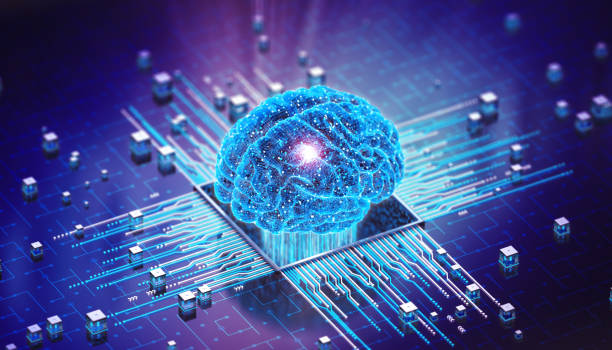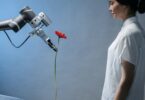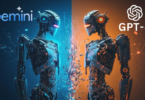AI Unleashed: Steering the Artificial Intelligence Frontier
In the realm of technological innovation, Artificial Intelligence (AI) stands out as a transformative force that has the potential to reshape industries, redefine human-machine interactions, and propel society into a new era of unprecedented possibilities. As AI capabilities continue to advance, we find ourselves at the forefront of a revolution where machines are not just tools but intelligent entities capable of learning, reasoning, and making decisions. Navigating the frontiers of Artificial Intelligence unveils a landscape marked by breakthroughs, challenges, and a myriad of opportunities that have far-reaching implications for the future.
The Rise of Machine Learning
At the heart of the AI revolution lies machine learning, a subset of AI that enables machines to learn from data and improve their performance over time without explicit programming. The advent of deep learning, a type of machine learning inspired by the structure and function of the human brain’s neural networks, has fueled remarkable advancements in AI capabilities.
- Neural Networks and Deep Learning: Neural networks, modeled after the human brain, consist of interconnected nodes that process and analyze information. Deep learning algorithms leverage deep neural networks with multiple layers to automatically extract features and patterns from data, enabling machines to perform tasks such as image recognition, natural language processing, and speech synthesis with unprecedented accuracy.
- Reinforcement Learning: Another significant development in machine learning is reinforcement learning, where machines learn to make decisions through trial and error. This approach has been instrumental in training AI systems for complex tasks, such as playing strategic games like Go or mastering robotic control in dynamic environments.
AI in Everyday Life
The integration of AI into everyday life is becoming increasingly ubiquitous, enhancing various aspects of our daily experiences. From virtual personal assistants and recommendation systems to smart home devices and language translation apps, AI technologies are seamlessly woven into the fabric of modern existence.
- Virtual Assistants: AI-powered virtual assistants, such as Siri, Alexa, and Google Assistant, have become integral parts of our daily routines. These systems leverage natural language processing and machine learning algorithms to understand user queries, provide information, and perform tasks, ranging from setting reminders to controlling smart home devices.
- Recommendation Systems: AI algorithms are being utilized to power recommendation systems on platforms such as Netflix, Amazon, and Spotify. These systems analyze user preferences and behaviors to offer personalized content recommendations, creating a more tailored and engaging user experience.
- Autonomous Vehicles: The development of AI plays a pivotal role in the evolution of autonomous vehicles. Machine learning algorithms enable self-driving cars to perceive their surroundings, make real-time decisions, and navigate complex traffic scenarios. This not only promises to enhance road safety but also revolutionize the future of transportation.
AI in Healthcare
AI is making significant strides in the field of healthcare, offering innovative solutions for diagnostics, treatment planning, and patient care. The ability of AI algorithms to analyze vast amounts of medical data quickly and accurately has the potential to revolutionize medical practices.
- Medical Imaging and Diagnostics: AI-powered image recognition algorithms excel in analyzing medical images, such as X-rays and MRIs, for the detection of anomalies and diseases. These technologies aid healthcare professionals in early diagnosis and treatment planning.
- Drug Discovery and Development: AI is accelerating the drug discovery process by analyzing biological data, identifying potential drug candidates, and predicting their effectiveness. This not only reduces the time and cost of drug development but also opens new avenues for personalized medicine.
- Predictive Analytics and Patient Monitoring: AI algorithms leverage predictive analytics to identify potential health risks and personalize treatment plans. Continuous monitoring through wearable devices and sensors enables real-time data collection, contributing to proactive healthcare management.
Challenges and Ethical Considerations
As AI technologies advance, they bring forth a set of challenges and ethical considerations that require careful navigation. Issues such as bias in algorithms, transparency in decision-making processes, and the impact of automation on employment are areas that demand attention and responsible AI governance.
- Bias and Fairness: AI systems are susceptible to biases present in the data they are trained on. If historical data reflects societal biases, AI algorithms may perpetuate or amplify those biases. Ensuring fairness and addressing bias in AI decision-making is a critical aspect of responsible AI development.
- Transparency and Explainability: The inherent complexity of some AI algorithms, particularly in deep learning, raises concerns about the lack of transparency and explainability. Understanding how AI systems arrive at specific decisions is crucial for building trust and ensuring accountability, especially in sensitive domains like healthcare and finance.
- Privacy Concerns: The collection and utilization of large amounts of personal data for training AI models raise privacy concerns. Striking a balance between leveraging data for innovation and safeguarding individual privacy is a complex challenge that requires robust regulations and ethical frameworks.
The Future of AI
Looking ahead, the trajectory of AI points towards a future marked by even more profound transformations across various sectors. The convergence of AI with other emerging technologies, such as the Internet of Things (IoT), 5G connectivity, and quantum computing, is expected to unlock new possibilities and capabilities.
- AI Unleashed and IoT: The synergy between AI and IoT is creating intelligent ecosystems where devices communicate, analyze data, and make decisions in real time. This convergence has implications for smart cities, industrial automation, and the development of interconnected and intelligent systems.
- AI Unleashed and Quantum Computing: The integration of AI with quantum computing holds the promise of solving complex problems at a scale and speed currently unimaginable. Quantum AI could revolutionize fields such as cryptography, optimization, and materials science, opening new frontiers in scientific discovery and technological innovation.
- AI Unleashed and Human Augmentation: The development of AI-powered assistive technologies is enhancing human capabilities, particularly in the realm of healthcare. AI-driven prosthetics, brain-computer interfaces, and assistive communication devices are empowering individuals with disabilities and augmenting human potential.
The Responsibility of AI Development
As AI continues to evolve and permeate various aspects of society, the responsibility of ethical AI development becomes paramount. Stakeholders, including governments, industry leaders, researchers, and the broader public, play crucial roles in shaping the future of AI in a manner that prioritizes human well-being, fairness, and transparency.
- Ethical AI Design: Integrating ethical considerations into the design and development of AI systems is essential. This involves addressing biases, ensuring transparency, and prioritizing fairness in algorithmic decision-making.
- Regulatory Frameworks: Governments and regulatory bodies play a crucial role in establishing frameworks that govern the responsible development and deployment of AI technologies. Robust regulations can ensure accountability, protect privacy, and foster innovation in a manner aligned with societal values.
- Continuous Learning and Adaptation: The field of AI is dynamic, and continuous learning and adaptation are fundamental. Researchers, developers, and practitioners must stay informed about the latest advancements, collaborate across disciplines, and be responsive to emerging ethical challenges.
Conclusion
AI Unleashed: Navigating the Frontiers of Artificial Intelligence signifies not just a technological evolution but a profound shift in how we perceive and interact with the world. As AI capabilities continue to advance, the journey into the frontiers of artificial intelligence presents a canvas of limitless possibilities. The responsible and ethical navigation of these frontiers requires a collective commitment to harnessing the power of AI for the betterment of society, fostering innovation, and ensuring a future where the benefits of artificial intelligence are equitably distributed. In this unfolding narrative, the role of humanity is pivotal, as we guide the trajectory of AI development towards.







[…] considerations play a crucial role in shaping the practices and decisions within the field of cybersecurity. Ensuring responsible and ethical cybersecurity […]